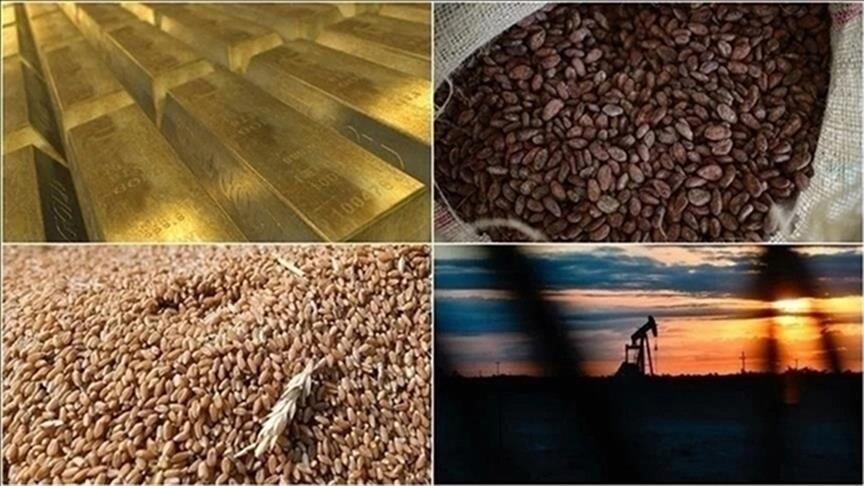Commodity prices rise amid geopolitical risks and China’s economic incentives
Energy and metals see gains while agricultural commodities show mixed results

ISTANBUL
Commodity prices continued their upward trend last week, driven by geopolitical tensions and China’s economic incentives, although gains varied across product categories.
A three-day strike by US dock workers over wage disputes and concerns over automation raised supply worries, contributing to price increases in several commodities.
In financial markets, Federal Reserve Chairman Jerome Powell’s recent remarks, along with US employment data, led analysts to believe the Fed is unlikely to make drastic rate cuts. However, a potential 25-basis-point cut in November pressured gold, which fell 0.2% per troy ounce last week. Powell emphasized that the Fed is in no hurry for further cuts, noting that cooling labor market conditions may not be necessary, with two additional rate cuts totaling 50 basis points anticipated by year-end.
Silver surged 1.9% last week, reaching its highest price since December 2012 at $32.95 per ounce, as concerns over a global silver deficit continued to fuel supply worries. Platinum and palladium also rose, gaining 1.3% and 0.1%, respectively.
China’s new economic stimulus measures impacted base metals, with most prices rising except for copper, which dropped 0.6% due to increased demand for the US dollar. Aluminum climbed 0.8%, lead 1.7%, nickel 5.3%, and zinc 2.8% per pound.
In energy markets, heightened tensions in the Middle East, particularly following Iran’s response to Israel over the assassinations of Hezbollah and Hamas leaders, intensified global supply concerns, pushing Brent crude oil up by 8.3% last week. Natural gas traded on the New York Mercantile Exchange fell by 2.5% in British thermal units (MMBtu).
Agricultural commodities saw mixed performance due to reports that the European Union may delay new rules restricting imports of products such as soybeans, beef, palm oil, wood, cocoa, and coffee, which are produced in environmentally sensitive areas.
Last week, sugar rose 1.6% per pound, while coffee dropped 5.3%, and cocoa fell sharply by 14.7% per ton on the Intercontinental Exchange. Cotton prices remained flat. Wheat, corn, and rice rose by 1.8%, 1.6%, and 0.1% per bushel, respectively, while soybeans declined by 2.6%.
Anadolu Agency website contains only a portion of the news stories offered to subscribers in the AA News Broadcasting System (HAS), and in summarized form. Please contact us for subscription options.







